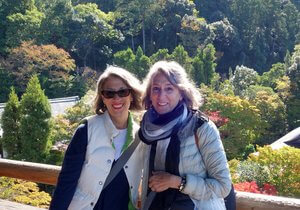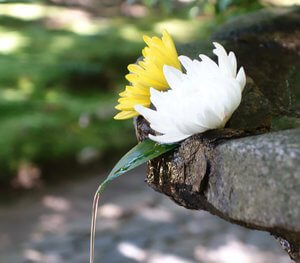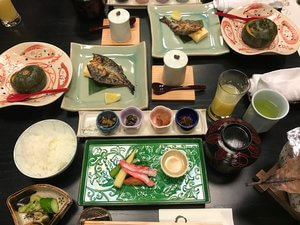As you know, if you’re on my mailing list, and/or have been in touch via social media (@DebbieIrwinVO), I was in Japan!!!

Not only was it an amazing experience, it was so different. I’m not talking about the obvious differences, language, food, etc. I’m talking about the little things that we as Americans don’t seem to put much thought into.
POTTY TRAINING
Who knew that a major component of the cultural adjustment to spending three weeks in Japan would be learning how to use the toilet. Heaters, washers, dryers, seat cleaners and ambient sounds — select any or all — they were part of the high-tech ritual.
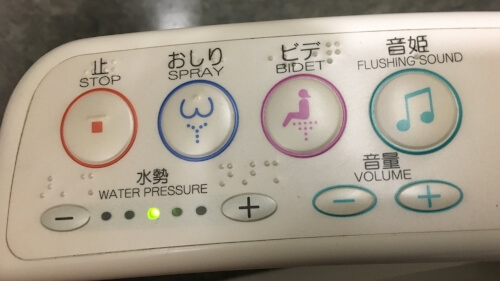
Before entering a bathroom (in every hotel room or Ryokan we stayed at), you’re expected to step out of your shoes and don the pair of slippers that remain inside the bathroom. The toilet seat cover automatically lifts. As your bum approaches the seat, a noise machine starts crooning water sounds that hide any noises you may make. The seat is, of course, heated. Once finished, you have an array of sprays with which to rinse off. And then there’s the dryer.
Toilet-ing like everything else in Japan, I discovered, is taken seriously, the details are important. Even in the public bathrooms, which are everywhere, you could eat off the floors they’re so clean and the toilet paper has been folded the way you find it in a hotel when you first arrive at your room. People leave it this way because that’s how they want to find it, and they would be horrified if anyone thought they didn’t leave the bathroom perfectly.
In time, I too folded the paper into a perfect V.
SOCIOCULTURAL TRAINING?
Please. Thank you. I’m sorry. Excuse me. If I said these once, I said these 1,000 times. And the Japanese people said it to me ten fold.
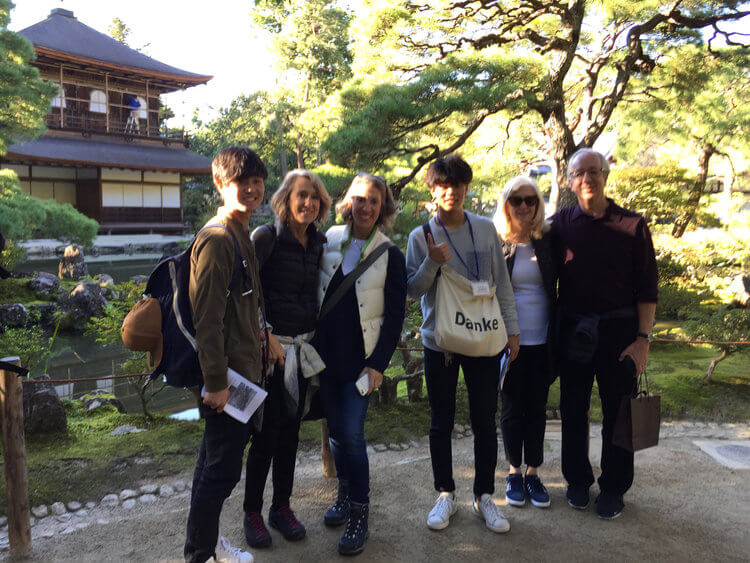
Polite? Yes. Trained? Absolutely. In Japan, you wait in line and/or on a specific line (sometimes marked with footprints) to:
Pick up your luggage from the carousel at the airport.
Get on the trains.
Walk up the stairs.
Get on the escalator.
Pay for your purchases.
People even wait for the light to change before crossing the street. Even when there are no cars in sight. In NYC we are always dodging cars trying to get where we’re going in the least amount of time. Wait for the light to turn green? Uh, I don’t think so; especially when there’s not a car in sight?
A week into the trip I started waiting with everyone else.
Now I’m folding toilet paper, waiting for the light before crossing the street, and who knows, maybe I’d even go so far as carrying my garbage all day? I wonder how long this new me will last.
RELIGIOUS TRAINING? SAINTS?
Yup. If cleanliness is next to Godliness, then the Japanese are all ‘sainted’ people. There was not a speck of garbage on the streets — anywhere. Nor a garbage can anywhere. So, what’s up with that? For starters, people DO NOT eat while walking. So they’re not generating garbage on the go. They take their garbage home with them, or, toss it at the nearest 7-11 (the ubiquitous grocery/ATM/drugstore), which has garbage bins.
Suddenly I was not snacking all day long. And any garbage I created stayed on my person for the entire day until I was able to locate a receptacle.

I can go on and on about how:
Drivers DO NOT honk their car horns.
Conductors and stewardesses on trains bow each and every time, entering and leaving a car.
People go out of their way to show you how to get to where you’re going.
All sidewalks have braille markings on the ground to help blind people navigate.
All elevators have low buttons for handicapped people.
All bathrooms have amenities for babies (bottle warmers, toddler seats in the bathroom stalls and rooms for nursing).
People bow in conversations with others (even when talking on the phone).
People do not on their cell phones in public places (on trains, in restaurants)
You are immediately greeted with a hot towel the minute you sit down in a restaurant.
Everything is done with a level of meticulousness no matter if it’s handling your credit card or wrapping a gift.
These subtle differences had a major impact on me, but I don’t want to spoil the experience for you. I will say you should visit Japan, if for no other reason than for their gardens. I don’t think I’ll ever tire of the majesty and mysticism of Japanese gardens. One was more beautiful than the next (and we saw many).
Immerse yourself in these photos, it’s the next best thing to being there.

